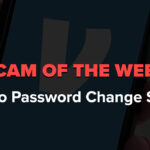Everyone loves a good impression. If you’re old enough to remember his John Wayne and Ronald Reagan, Rich Little is an American treasure. The contemporary equivalent is more along the lines of Bill Hader with his impressions of Seth Rogan and Alan Alda (perhaps “contemporary” is the wrong adjective). Regardless of your preferred voice maestro, they all have a knack for nailing not only the intonation, but also the mannerisms, tics, and facial expressions. To really nail an impression, it takes a symphony of performance. But what separates an impression from an impersonation? While the dictionary separates the two by voice impression versus full body impersonation, we here at YouMail tend to think of an impression more as an act of jest, whereas impersonation usually treads into the realm of deception. You see, we’re something of an expert on the latter, where menacing callers impersonate legitimate brands to fleece their victims. Over the phone, mannerisms, verbal tics, and facial expressions are less effective in selling the performance. Instead, they use number spoofing, urgency, and social engineering to deceive this audience.
In this article, we cover:
- The difference between good impressions and bad impersonations.
- Recent damage done by vishing, phishing, smishing, and pharming attacks.
- YouMail brand protection service.
The victims of brand impersonation aren’t just those who were called, but also those who were being impersonated. That may include the IRS, the local police, financial institutions, and major brands. When Elon Musk was impersonated to defraud would-be investors out of more than $2 million over a period of six months, it wasn’t a South-African-tinged-with-Canadian accent that deceived victims. It was the urgency of a once-in-a-lifetime offer seemingly coming from one of the world’s wealthiest people with the promise to make huge returns on their cryptocurrency investment. It was a plausible enough scenario for the type of scam to which consumers lose about $1,900 on average.
Going back further, almost exactly one year in fact, you may recall how some of the most prominent Twitter users’ accounts were hacked, including those of President Barack Obama, then presidential hopeful Joe Biden, Musk, Bill Gates, Kanye West, Michael Bloomberg, and Apple. In this case, impersonating famous people and major brands on their own legitimate Twitter accounts led people into being defrauded out of nearly $120,000.
Again, the damage reverberates much further than the initial act.
Musk is associated with Tesla and SpaceX. Bill Gates with Microsoft. Kanye designs shoes with Adidas. Presidents Obama and Biden represent the U.S. government. And Apple is … well, Apple. Though the hit to their reputations may be relatively small compared to the gargantuan size of their names, for any brand that isn’t a household fixture — one that scratches and claws for every inch of respectability — such attacks could result in a significantly larger loss in stature.
Gone Vishing
The threat to brand integrity isn’t isolated to social media. Vishing attacks present the same vulnerabilities, just over a different medium. Vishing is the voice equivalent to the phishing email attacks your company is already weary of. The FBI defines these attacks as the use of unsolicited email, text messages, and telephone calls purportedly from a legitimate company requesting personal, financial, and/or login credentials. There were more than 241,000 victims of phishing, vishing, smishing, and pharming attacks that caused over $54 million in direct losses in 2020. The cost of lost brand reputation as a result of these attacks is immeasurable.
Once trained not to trust calls purporting to be from your company, customers and prospects will stop answering your legitimate outreach, including outbound campaigns. Indeed, Americans receive between 100 million to 150 million robocalls per month from fraudsters claiming to be with Amazon. The perpetrators attempt to trick consumers into believing that suspicious activities have been spotted on their Amazon accounts. Victims are then asked to pay off bogus charges between the amounts of $729 and $1,499. And though consumers need to be on the alert, so too do the companies whose brand names have been used against their own customers.
So how do you stop brand impersonation?
Brand Protection Service
YouMail has leveraged its industry-leading consumer robocall protection services to offer a high level of protection to enterprises seeking to defend their brands from fraudulent impostors. Our brand protection service prevents bad actors from leveraging your brand in their fraud campaigns. Tapping into our wealth of calling data, we monitor all fraud activity that involves your brand to provide you with a detailed analysis by campaign type, frequency, and sources. To mitigate fraud, we alert you when we detect new fraud campaigns and activity levels change using AI-powered analytics, objective evidence, a live call sensor network, and more.
Stop the bad impersonations and put an end to the damage to your brand’s integrity now. Schedule a demo of YouMail’s brand protection service today.





